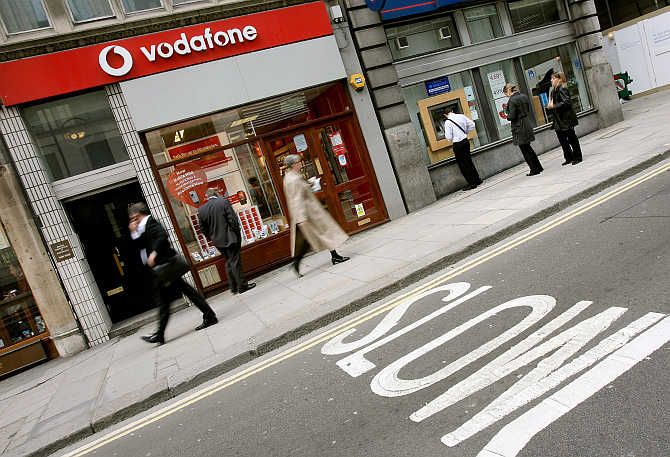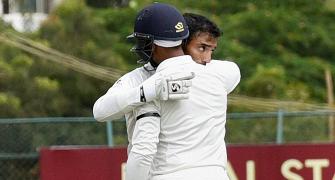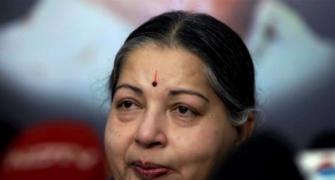 The Supreme Court on Monday directed the department of telecommunication to approve the merger of four firms with Vodafone Mobile Services upon the latter paying Rs 2,000 crore (Rs 20 billion) to the government.
The Supreme Court on Monday directed the department of telecommunication to approve the merger of four firms with Vodafone Mobile Services upon the latter paying Rs 2,000 crore (Rs 20 billion) to the government.
The order was made in the government’s appeal against the interim order of the Telecom Disputes Settlement and Appellate Tribunal on spectrum usage charge and other issues, including the merger of Vodafone-related firms.
In its order, TDSAT had stated no amount was payable till resolution of the disputes.
The government moved the Supreme Court against the order, arguing the company had not followed the guidelines for merger.
It contended the merger could not be approved till the dues of the companies were cleared.
The Supreme Court Bench headed by J S Khehar heard the government’s appeal and passed the order, asking TDSAT to speed up the hearing in view of the huge amounts involved.
The government’s demand against Vodafone Mobile is Rs 6,678 crore (Rs 66.78 billion) under five heads.
However, Vodafone has disputed the amounts and agreed to pay Rs 1,773 crore (Rs 17.73 billion), which is outside the TDSAT’s purview if the merger was approved.
The Supreme Court made it a round figure of Rs 2,000 crore (Rs 20 billion).
The order added that in case Vodafone succeeded ultimately in its petitions before the tribunal, the government should refund the amount to the company with interest determined by the tribunal.
The government argued that according to DoT guidelines, approved by the Cabinet, all liabilities should be cleared before any merger takes place.
The company moved the tribunal and got stay orders.
Government counsel Narasimha contended this is the usual course adopted by telecom companies.
When contacted, Vodafone India refused to comment, saying the matter is sub judice.
There are several cases before the tribunal in which stay orders have been obtained by them and then the cases are not decided for decades, he added.
The government needs money immediately and it cannot be run on undertakings, the counsel said.
Vodafone's counsel K K Venugopal told the court that the operation was mainly an internal restructuring of the telecom companies related to each other and there was no transfer of spectrum from one area to another. Several circles are involved in the operation, he said.
Vodafone got conditional approval for merger of various entities from DoT on December 8, 2014, subject to certain payments. However, the British telecom major represented that such amounts were not payable to DoT.
The DoT thereafter issued revised letter on May 6, 2015 seeking certain undertakings instead of payments for adjusted gross revenue and spectrum usage charges.
However, DoT insisted on payments for Tamil Nadu, one-time spectrum charge.
Vodafone filed a petition in TDSAT and the TDSAT passed an interim order on October 19, 2015 directing DoT to provisionally allow merger of licenses subject to petitioners giving undertaking to DoT and TDSAT that they will pay the amounts as per the final judicial decision.
Accordingly, Vodafone furnished an undertaking to DoT and TDSAT on October 30, 2015, following which the telecom major went to court.
Moreover, the government and Vodafone are getting closer to settling their eight-year tax spat over the 2007 Hutch-Vodafone cross-border deal.
The British telecom major, which had sought arbitration under the Indo-UK bilateral investment protection treaty in June, has formally approached the finance ministry for conciliation.
WIRES CROSSED
THE ORDER
The order was made in the government’s appeal against the interim order of the Telecom Disputes Settlement and Appellate Tribunal in disputes over spectrum usage charge, including merger of Vodafone-related firms
THE DEMAND
The government’s demand against Vodafone Mobile is Rs 6,678 crore under five heads. However, Vodafone has disputed the amounts and agreed to pay Rs 1,773 crore, which is outside the TDSAT’s purview if the merger was approved
THE ARGUMENT
The government argued that according to DoT guidelines, approved by the Cabinet, all liabilities should be cleared before any merger takes place. The company moved the tribunal and got stay orders










